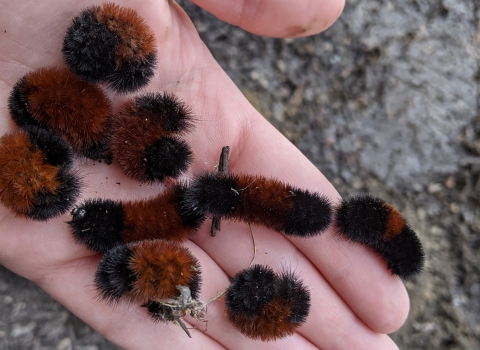The U.S. Fish and Wildlife Service will immediately begin assisting with the enforcement of a new Federal embargo on the importation of all rodents from Africa. The Service is the primary Federal agency responsible for regulating international trade in wildlife species.
The ban on African rodent imports, issued by the U.S. Department of Health and Human Services (HHS) on June 11, 2003, was prompted by the recent outbreak of human monkeypox virus in this country. In addition to shutting down incoming trade in African rodents, HHS has also prohibited the interstate sale, interstate transport, and export of prairie dogs and six specific African rodent species: tree squirrels, rope squirrels, dormice, Gambian giant pouched rats, brush-tailed porcupines, and striped mice.
"Although our wildlife inspectors primarily focus on monitoring the legal wildlife trade and working to stem the illegal trade in protected species, the Service also uses its enforcement resources to help protect Americans from wildlife-borne diseases," said Service Director Steve Williams. "A"We are consulting and cooperating with the Centers for Disease Control and Prevention as well as other Federal health and inspection agencies to develop a government-wide strategy to help prevent future importations of animals that might infect native wildlife and, in turn, possibly endanger the health of our citizens."
The Service"s 92 wildlife inspectors, stationed at 32 international airports and border crossings throughout the United States, will help implement the embargo on African rodents by stopping all shipments containing such species and consulting with CDC as to their disposition. Under Service regulations, wildlife shipments entering the United States are funneled through specific ports of entry where they can be monitored for compliance with Federal wildlife protection laws and regulations. Last year, Service wildlife inspectors processed more than 120,000 wildlife shipments.


